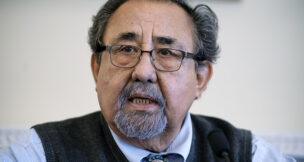Supreme Court questions prosecutor on legality of marijuana extracts as medicine
Dillon Rosenblatt//March 19, 2019//
Supreme Court questions prosecutor on legality of marijuana extracts as medicine
Dillon Rosenblatt//March 19, 2019//

The question of whether edibles and other extracts are protected under the Arizona Medical Marijuana Act could come down to what is considered usable marijuana.
The Arizona Supreme Court considered the question during oral arguments Tuesday in State of Arizona v. Rodney Jones, a case which will determine if the legality of hashish – the resin from the marijuana plant – is the same as the plant itself.
Yavapai County prosecutor Benjamin Kreutzberg, representing the state, said voters knew the difference between cannabis, which covers things like hashish and other extracts, and marijuana when they voted to legalize it for medical purposes in 2010 and they did not intend for extracts or edibles to be included.
Kreutzberg said the language in AMMA permits marijuana patients to use “usable marijuana,” meaning the marijuana flower and leaves of the plant. Anything else he says would be illegal.
Justice John Pelander, who is still involved in a handful of cases after his Feb. 28 retirement, said the distinction between cannabis and marijuana could not be determined from the materials voters were given in 2010. Pelander also said the definition of marijuana does include all parts of the plant, conflicting what Kreutzberg argued.
“It’s undisputed in this case that the resin that we’re talking about here is a part of the plant. So tell me again why the people of Arizona would have known that resin extracted from a marijuana plant would not be covered by AMMA?” Pelander said.
The case stems from the 2013 arrest of Rodney Christopher Jones for possession of 0.05 of an ounce of hashish, even though he had a valid medical marijuana card and bought the product from a state-licensed dispensary. Yavapai County Attorney Sheila Polk, an ardent anti-marijuana crusader prosecuted Jones and he was sentenced to two and a half years in prison. He got out of prison in June 2017.
The Arizona Court of Appeals concluded in a 2-1 decision in June that hashish is legally not the same as the plant itself.
If the state’s highest court upholds the decision, then that could affect dispensaries statewide, but one member of the Arizona Dispensaries Association isn’t too worried.
Moe Asnani, an ADA board member in Tucson, said because they don’t know where Jones got the hashish from, they won’t know if it would even affect the dispensaries since no proof has been provided he did obtain the hashish from a dispensary.
Asnani said the fact the Court of Appeals decision wasn’t unanimous is important.
“The deck is stacked against this being upheld,” Asnani said.
On Jones’ side, attorney Robert Mandel told the justices the whole purpose of AMMA was to give patients with Department of Health Services-approved medical conditions access to marijuana chemicals for medicinal purposes. He said it applies to children and adults.
“Nobody anticipated that two or three-year-old minors were going to be rolling joints and smoking them, because that’s absurd,” he said to the justices. He also explained how there are even situations where patients cannot smoke or eat it and rely on other ways of consumption.
Mandel then described the process of activating the ingredients, which led to Justice Ann Scott Timmer mentioning how one of the briefs filed went into detail about how to make pot brownies and quipped, “now I know exactly how to do this.”
The important part to take from the conversation is that a high temperature is necessary for the product to be medically effective and that crushing up flowers wouldn’t do anything as Timmer suggested.
Kreutzberg said “it can be done” and refused to concede the point to Timmer that without the heat, crushing the flower would not be an effective way to receive the medical benefits of the plant.
Chief Justice Scott Bales, who recently announced his impending retirement, also questioned the deputy county attorney on this matter.
Bales said reading the law the way Kreutzberg does would mean edibles and extracts are illegal, which would be irrational.
“… it would force people to use the least effective way of obtaining the therapeutic effects that are thought to be associated with cannabinoids,” Bales said.
Bales also took issue with Kreutzberg attributing to the voters knowing the differences between cannabis and marijuana in 2010.
“It’s hard for me to see how you can attribute to the voters an intent to preserve a broad prohibition on cannabis and only permit a more narrow definition of marijuana when the AMMA itself has a broader definition,” Bales said.
Asnani brought up what he thinks is a bigger issue that people don’t seem to be addressing.
“Everybody is worried about medical marijuana … but hemp is also going to be affected.” Asnani said.
He said if the state Supreme Court decides to uphold the ruling then you could say all hemp extracts are also illegal, which would make it stand alone as the only state with illegal hemp products nullifying Trump’s farm bill, which legalized hemp federally.
The court gave no indication when it will rule.


















